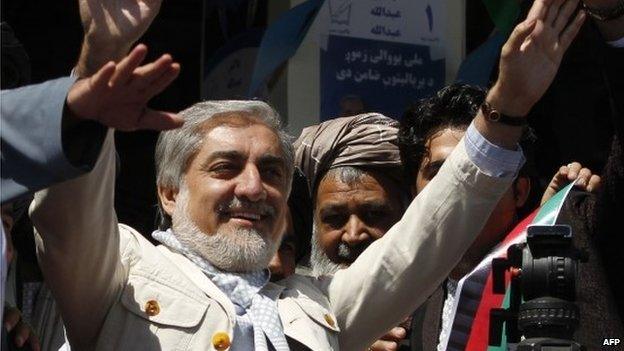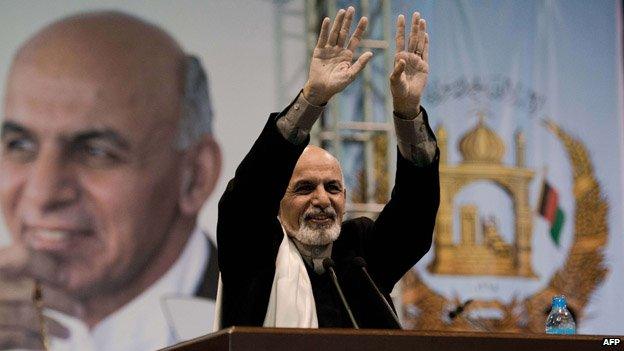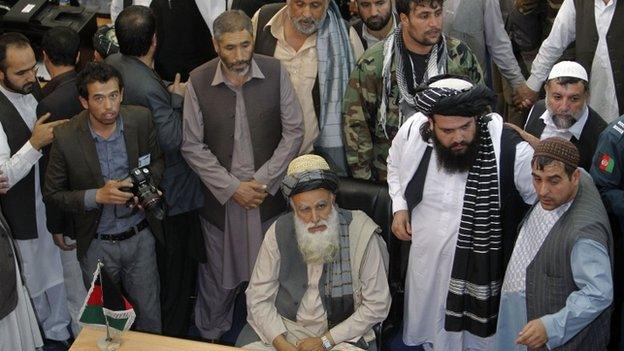The contenders in the Afghan presidential race
- Published
As Afghanistan awaits results from run-off presidential elections in which current leader Hamid Karzai could not stand, the BBC profiles the contenders.
Abdullah Abdullah

Abdullah Abdullah is hoping the Afghan electorate give him the benefit of the doubt this time round.
Abdullah Abdullah, a Tajik-Pashtun former eye surgeon, was Hamid Karzai's closest challenger in Afghanistan's last presidential election in 2009.
He polled 45% in the first round this year.
Born in 1960 in the Kabul area, he is seen by many as a Tajik despite his mixed ethnicity.
This is because of his past prominence in the Tajik-dominated Northern Alliance, as well and his close relationship with the anti-Taliban group's former leader, Ahmad Shah Masoud.
He began his career in Kabul's eye hospital but left for Pakistan in 1982 after the Soviet invasion of Afghanistan. Throughout the 1980s he co-ordinated treatment and healthcare for resistance fighters and civilians, and that is where he first became associated with Masoud.
Serving as foreign minister in the short-lived government headed by the Northern Alliance, Dr Abdullah continued as "foreign minister in exile" throughout the years of rule by the Taliban, which was ousted in 2001.
Following the fall of the Taliban he was foreign minister but resigned in 2006 and registered as an independent candidate to contest 2009's election.
The suave and smooth-talking politician during that election campaign said then: "Karzai turned a golden opportunity into disaster. There's no point giving him five more years."
He's hoping the Afghan electorate give him the benefit of the doubt this time round.

Ashraf Ghani

Ashraf Ghani gave up his US citizenship in order to run for the 2009 presidential elections
A former World Bank academic, who carved out a respected international career during decades in exile, Ashraf Ghani has a PhD in anthropology from Columbia University in the US.
He won 31.5% of votes in the first round.
Widely seen as a technocrat and an academic, he served as a special adviser to the UN's envoy to Afghanistan from 2001.
He was appointed economic adviser in Hamid Karzai's interim government immediately after the Taliban's fall and had the crucial brief of reconstruction and foreign aid.
But in 2004 he declined to join Mr Karzai's new government, asking instead to be appointed as chancellor of Kabul University. Most recently he has had responsibility for Afghanistan's security transition.
He also made a bid for power in the 2009 presidential elections - giving up his US citizenship in order to do so - but ended up only polling about 3% of the vote.
His campaign then made poverty alleviation among the rural poor one of its key concerns.
"They know my voice," Mr Ghani said of Afghan voters. "The only person who has addressed the issues of rural Afghanistan has been me. You put me in front of any rural village in Afghanistan and see who connects to who."
- Published7 October 2013
